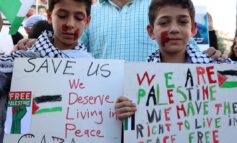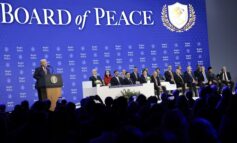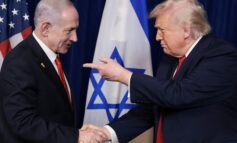Washington — Interfaith leaders from the worlds of government, religion, academe and civil society gathered at a roundtable organized by the World Economic Forum and Georgetown University, on the occasion of the official U.S. launch of the first “Islam and the West: Annual Report on the State of Dialogue.”
The report is the first of its kind — a systematic overview of how Muslim and Western societies perceive and relate to each other at the political, social, economic and cultural levels.
The purpose of the roundtable, moderated by Sally Quinn of the Washington Post, was to debate and discuss the issues surrounding Islam and American politics, with a particular focus on the upcoming U.S. presidential elections. Participants discussed critical questions, like how Islam is emerging in the presidential campaign, and what its likely impact will be. Also discussed were the major tensions at the intersection of the Muslim minority and wider American society.
Participants agreed that Muslim voters and issues are having a greater impact than at any other point in U.S. history. The fact that Barack Obama had a Muslim father — and his middle name is “Hussein” — has surfaced as a campaign issue. And John McCain repeatedly calls “the struggle against radical Islamic extremism” the “transcendent challenge of the 21st century.”
Rep. Keith Ellison (D-Minn), the first Muslim elected to the U.S. Congress, argued that pluralism in America is under threat. “The president has a responsibility to signal to the public that religious tolerance and pluralism is how we do business in the United States,” he commented.
Rep. Andre Carson (D-Ind), the second Muslim elected to Congress, also emphasized the importance of interfaith dialogue.
“These are sensitive questions to confront, but they are also extremely important ones,” said Georgetown University President John J. DeGioia, who served as chair of the roundtable and serves as lead author of the annual report. “Other questions, however, can help us discover our common ground — our shared values, our shared desires, our shared perspectives…I cannot stress this enough, that the only way to achieve a more peaceful and tolerant world is through a greater understanding of both our differences and our commonalities.”
“The symposium brought together some of the most influential leaders and activists who represent a wide range of views of the role of Islam in American politics,” said Sherif El-Diwany, director of the Middle East and North Africa section at the World Economic Forum. “We invited participants to work with inquisitive minds to construct an objective, accurate and current account of the positions of the most important stakeholders in the U.S. regarding Islam and American politics.”
The “Islam and the West: Annual Report on the State of Dialogue” report finds that majorities in populations around the world believe that violent conflict between the West and the Muslim world can be avoided, but they also share a great deal of pessimism about the state of the relationship. Among both Muslim majority and non-Muslim majority nations, the proportion who say they think the “other side” is committed to better relations rarely rises above a minority of 30 percent. Notwithstanding the prevalent sense of skepticism, majorities of residents in nations around the world say that better interaction between the Muslim and Western worlds is important.
An important finding of the report is the emergence of citizenship and integration as the second most powerful shaper of the state of dialogue after international politics. Since 9/11 the civil liberties of Muslim citizens have been damaged and this news is not reaching American general public and creates a gap in awareness.
Participants at the roundtable discussion, moderated by Quinn, included Akbar Ahmed, Ibn Khaldun Chair of Islamic Studies at American University; Nihad Awad, Executive Director of the Council on American-Islamic Relations; Zahid Bukhari, Director of the American Muslim Studies Program at Georgetown University; John J. DeGioia, President of Georgetown University; Congressman Keith Ellison (D-Minn); Sherif El-Diwany, Middle East Director of the World Economic Forum; John Esposito, University Professor at Georgetown University; Ari Gordon, Assistant Director for Interreligious Affairs at the American Jewish Committee; Jane McAuliffe, Dean of Georgetown College at Georgetown University; Dalia Mogahed, Senior Analyst and Executive Director of the Gallup Center for Muslim Studies; Jane Ramsey, Executive Director of the Jewish Council for Urban Affairs; Rev. Jim Wallis, founder of Sojourners ministries and magazine; and, Zainab Al-Suwaij, co-founder and Executive Director of the American Islamic Congress.
The World Economic Forum is an independent international organization committed to improving the state of the world by engaging leaders in partnerships to shape global, regional and industry agendas. Incorporated as a foundation in 1971, and based in Geneva, Switzerland, the World Economic Forum is impartial and not-for-profit; it is tied to no political, partisan or national interests. For more information, visit: //www.weforum.org.
Georgetown University is the oldest and largest Catholic and Jesuit university in America, founded in 1789 by Archbishop John Carroll. Georgetown today is a major student-centered, international, research university offering respected undergraduate, graduate and professional programs in Washington, DC, Doha, Qatar and around the world. For more information about Georgetown University, visit www.georgetown.edu.
Editor’s note: Islam and The West: Annual Report on the State of Dialogue is available for download at: www.weforum.org/c100 and //islamwest.org.





Leave a Reply